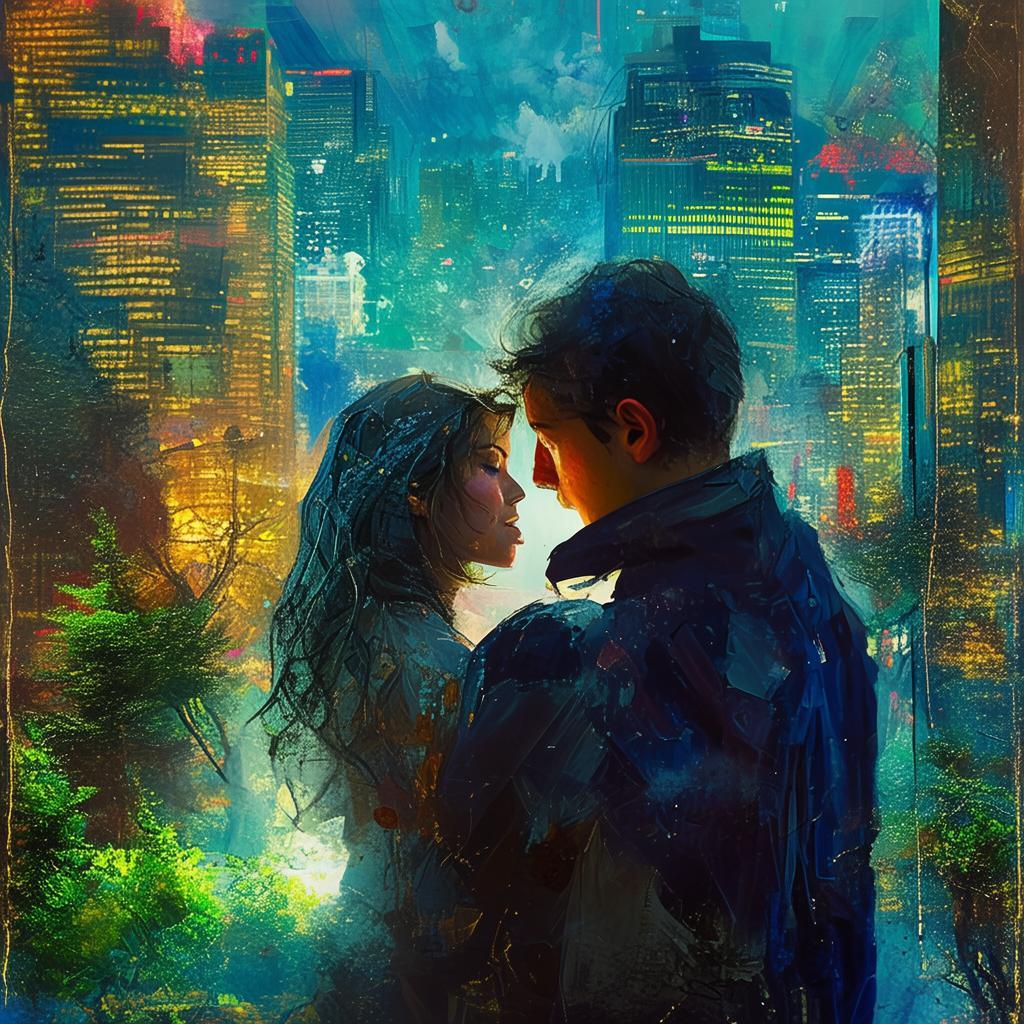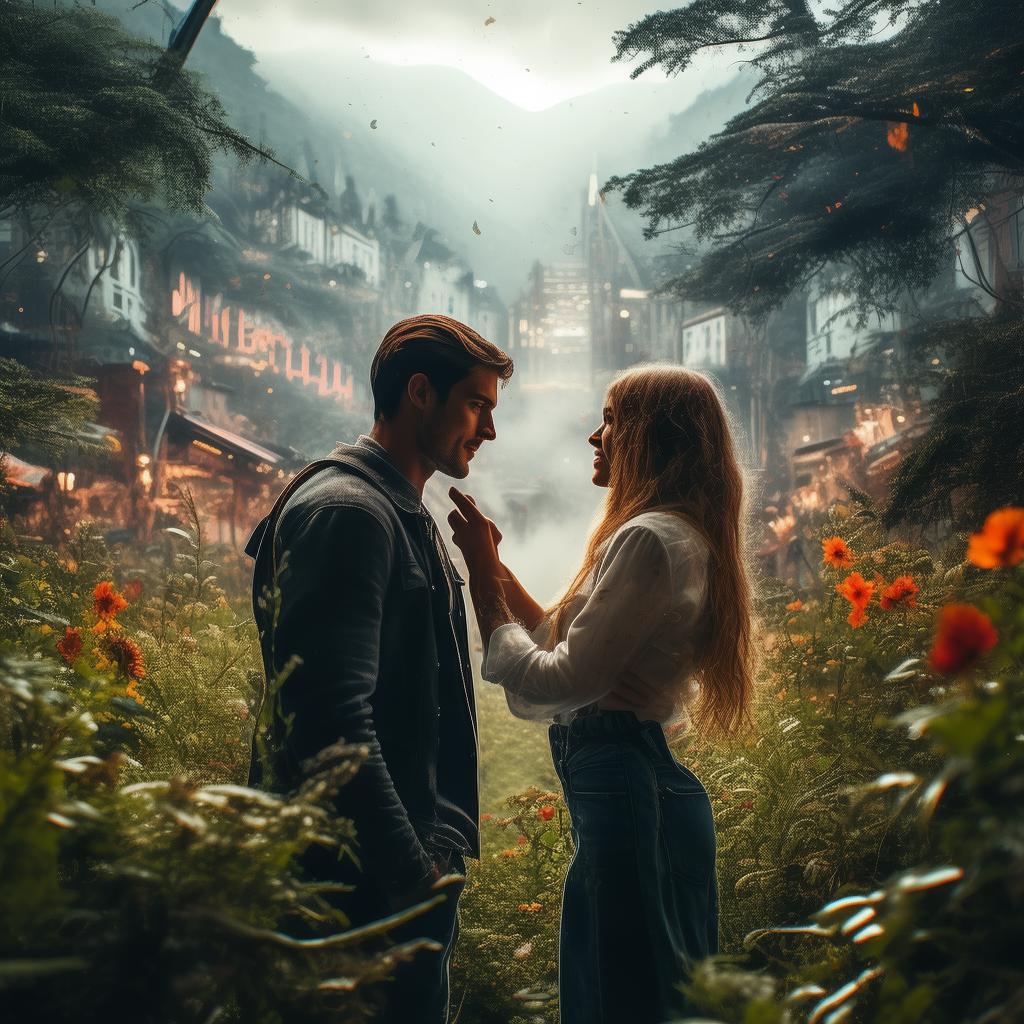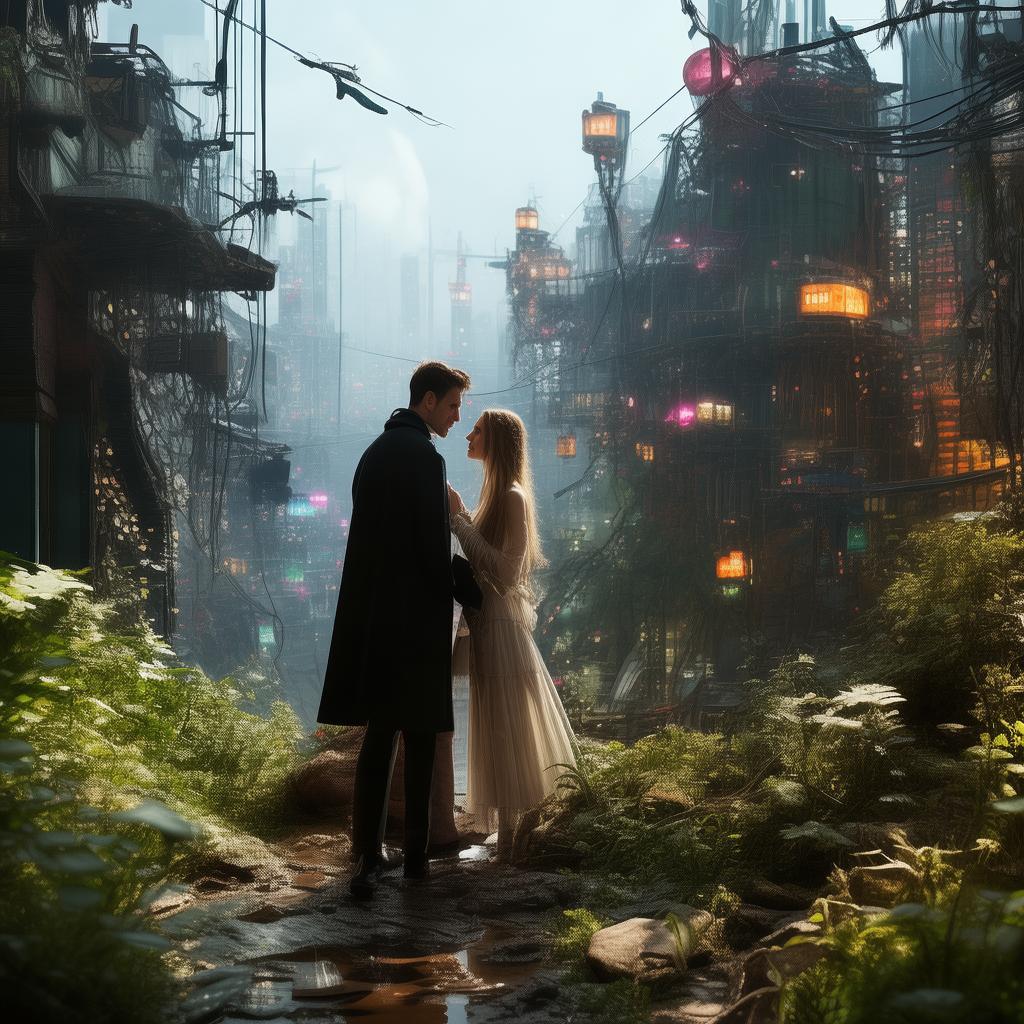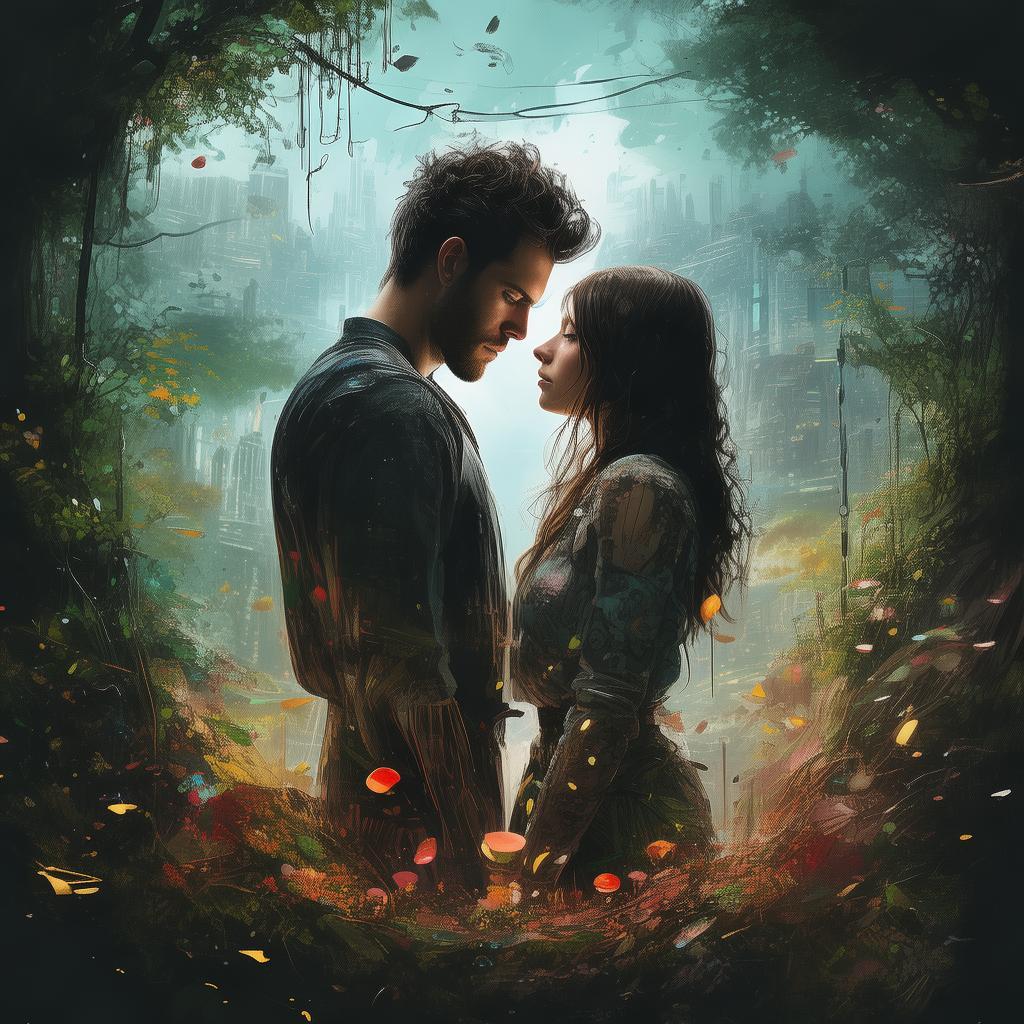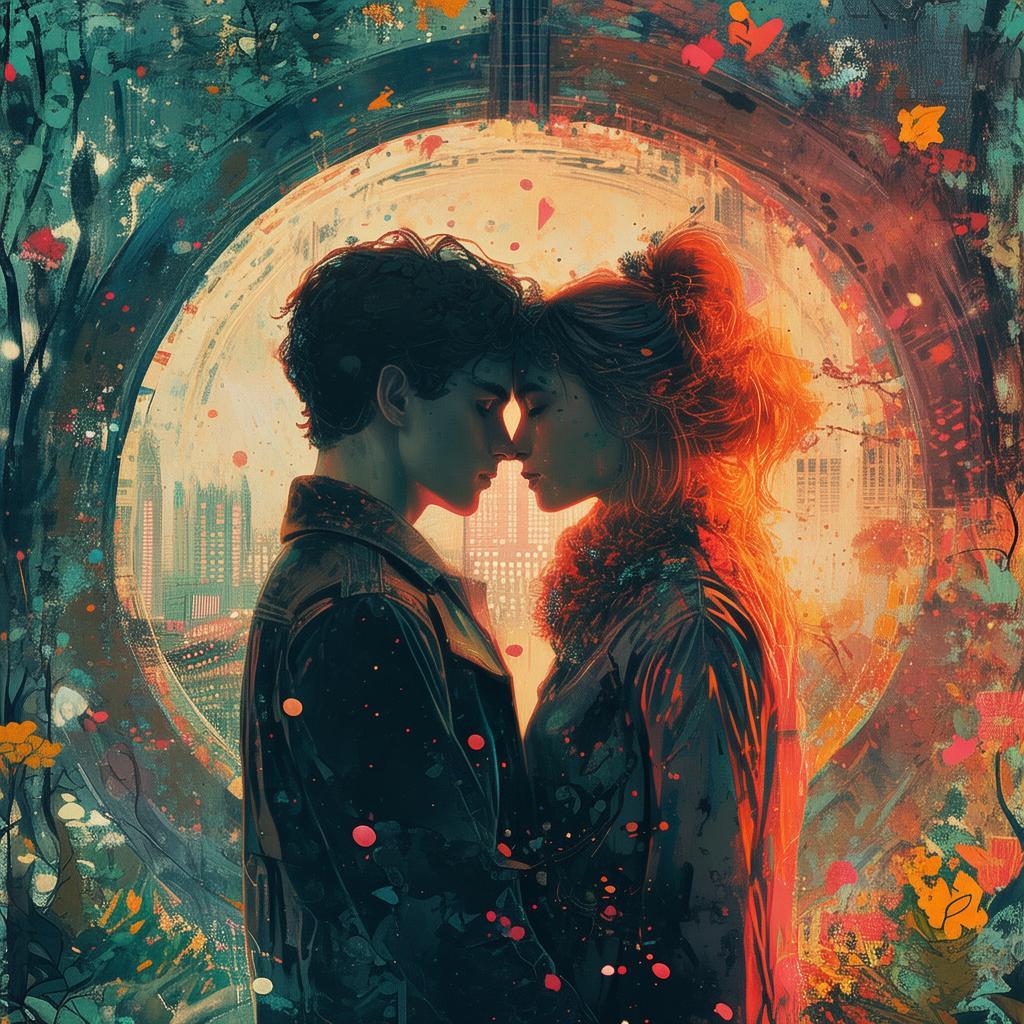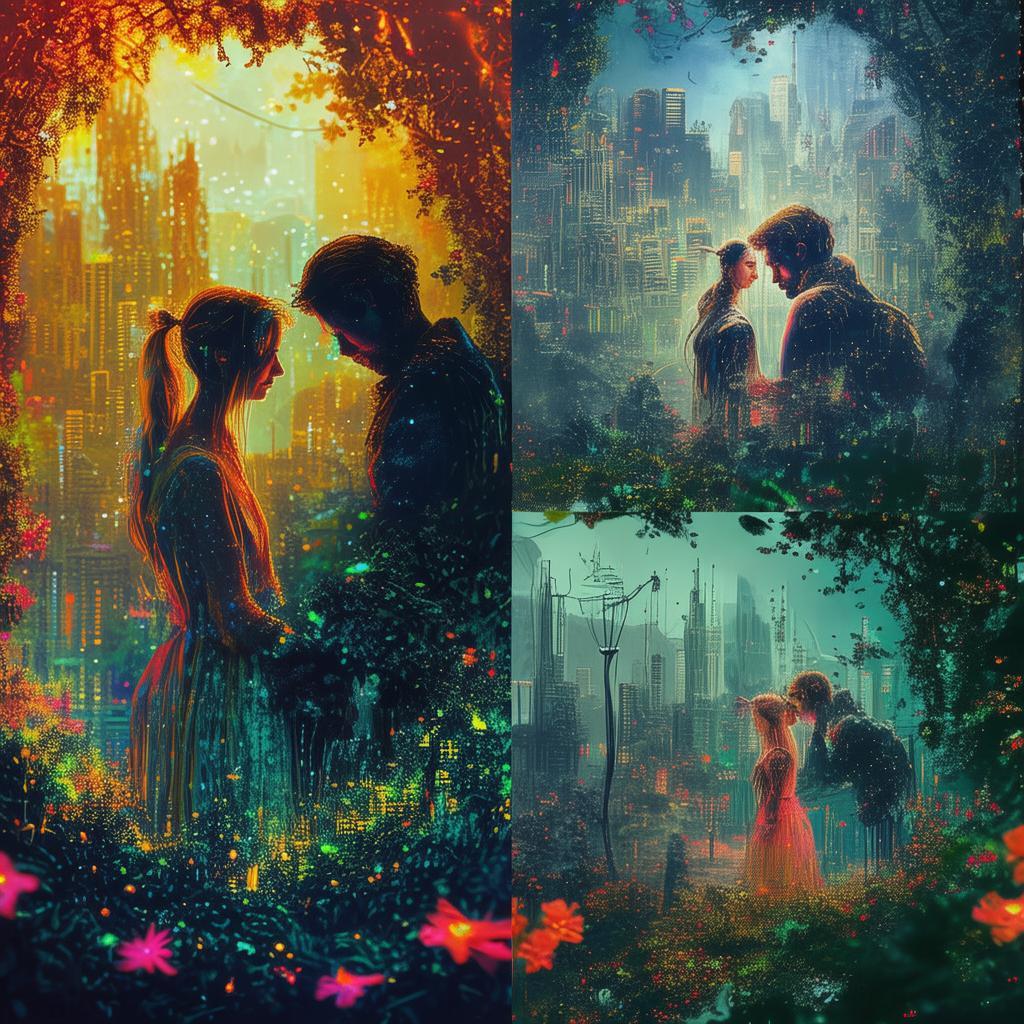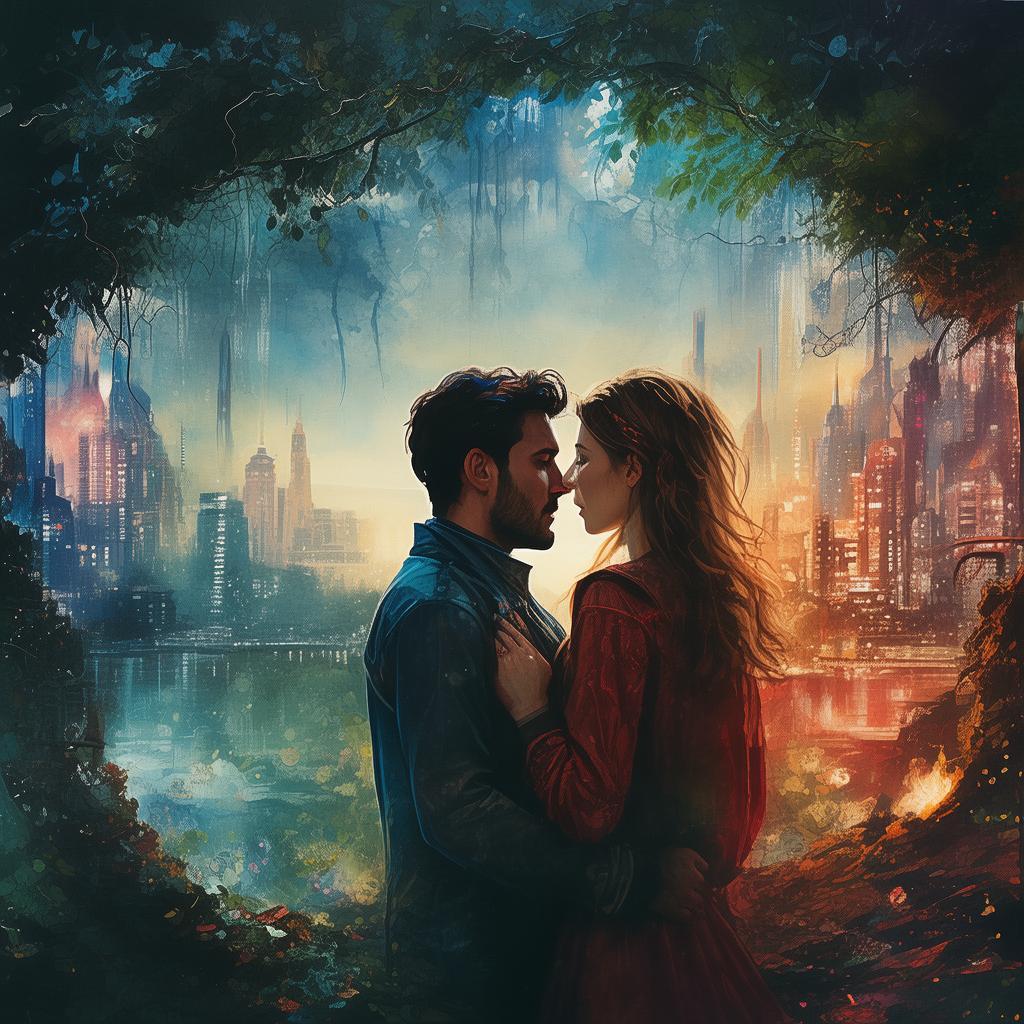The Dying Daffodil: A Lament for Love and the Vanishing Sunlight
In the heart of a sun-kissed English village, where the air was thick with the scent of blooming flowers and the hum of summer, there stood an old, ivy-covered cottage. It was there that Eliza, a young woman with a heart as vast as the skies above, had found solace and companionship in the company of her late husband, Thomas. The cottage, with its walls whispering tales of love and loss, had become her sanctuary, a place where the warmth of memories lingered.
Eliza had loved Thomas with all her being, and though his absence had left an emptiness in her heart, it was the daffodils that he had planted around the cottage that kept her grounded. Each year, as the daffodils bloomed, they seemed to whisper his name, a testament to the love that had once thrived there. But this year, the daffodils were different. Their vibrant yellow hues were fading, their petals wilting under the relentless gaze of the sun.
The dying daffodil became a symbol of the love that was dying within her. Eliza felt the weight of time pressing down on her, the relentless march of days that seemed to drag her further away from the love that had once filled her life. She felt a deep, aching sorrow that was as palpable as the cold that seeped into her bones.
One day, as Eliza wandered through the village, she encountered a young man named Edward. He was the son of a neighbor, a boy with a gentle smile and eyes that held a world of untold stories. Edward was different from the other boys in the village; he seemed to see the world in a way that others did not, with a sense of wonder and a touch of melancholy.
Edward had always been drawn to the cottage, to the garden where the daffodils lay dying. He found himself returning to it often, as if he were drawn by some unseen force. One day, he decided to speak to Eliza, to share his observations about the daffodils and to express his condolences.
"You know, Eliza," Edward began, his voice soft and filled with empathy, "those daffodils are like a piece of your heart, aren't they?"
Eliza looked at the young man, surprised by his insight. "You have a way of seeing things others overlook," she replied, her voice tinged with emotion.
Edward nodded. "I think they're trying to tell us something, Eliza. That even when things seem to be dying, there's always a chance for something new to grow."
Eliza pondered his words as she walked back to the cottage. She realized that perhaps the daffodils were not just a symbol of lost love, but also of hope. They were a reminder that even in the darkest times, there was still light to be found.
As days turned into weeks, Eliza and Edward began to meet more often. They shared stories, laughter, and a newfound connection. Eliza felt the warmth of life returning to her, a warmth that she had thought she would never feel again. Edward, with his gentle demeanor and boundless optimism, was the sunlight that seemed to be reviving the dying daffodils.
But as the summer days waned and the sun began to set earlier, a shadow fell over the village. The daffodils were fading even faster, and Eliza felt a deepening sense of urgency. She knew that she had to find a way to save them, to save the love that they represented.
Edward, sensing her distress, offered to help. Together, they researched the reasons behind the daffodils' decline. They learned that the soil around the daffodils had become too compacted, suffocating the roots and preventing them from absorbing the nutrients they needed to thrive.
With determination, Eliza and Edward set to work, carefully removing the soil and replacing it with fresh, loamy earth. They watered the daffodils with the purest of rainwater, hoping to bring them back to life. Day by day, the daffodils began to show signs of recovery, their petals slowly unfurling under the nurturing care of the two friends.
As the daffodils bloomed once more, their vibrant yellow hues a stark contrast to the encroaching darkness of autumn, Eliza felt a profound sense of renewal. She realized that just as the daffodils had fought back against the elements, so too had she and Edward fought against the shadows of their past.

The love that had seemed to be dying within Eliza had been rekindled by Edward's presence. In each other, they had found a reason to hope, a reason to love again. The daffodils, now healthy and full of life, were a testament to the power of love and the enduring strength of the human spirit.
One evening, as the sun dipped below the horizon, casting a golden glow over the village, Eliza and Edward stood in the garden, watching the daffodils sway in the gentle breeze. The dying sunlight bathed them in its warm embrace, and for a moment, time seemed to stand still.
"You know, Edward," Eliza said, her voice filled with gratitude, "without you, I might have lost hope."
Edward smiled, his eyes twinkling with the same light that now illuminated the garden. "And without you, Eliza, I never would have learned to truly see."
The dying daffodil had become more than just a symbol of lost love and the vanishing sunlight; it had become a symbol of redemption, a reminder that even in the darkest of times, there is always hope.
✨ Original Statement ✨
All articles published on this website (including but not limited to text, images, videos, and other content) are original or authorized for reposting and are protected by relevant laws. Without the explicit written permission of this website, no individual or organization may copy, modify, repost, or use the content for commercial purposes.
If you need to quote or cooperate, please contact this site for authorization. We reserve the right to pursue legal responsibility for any unauthorized use.
Hereby declared.
